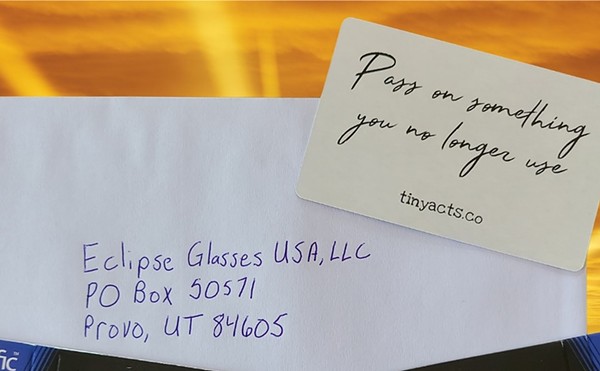This week’s Editor’s Note was prepared minutes before I had the great opportunity and privilege to sit down with the Israeli Consul General, Yaron Sideman, to discuss the Iran nuclear non-proliferation agreement.
The Iran nuclear non-proliferation agreement is not only a good deal, but an imperative deal. With growing support among the science, military, religious and international communities, the deal reached between Iran, the E3/EU+3 and the United States is historic. It contains substantive solutions and legitimate rebuttals to all of the concerns of the skeptics and the bluster of the doomsayers.
Before diving into the weeds, it is important to understand the context of the foremost opponents of the deal, Israel and AIPAC — the American Israeli Public Affairs Committee, which proclaims itself to be “America’s Pro-Israel Lobby,” which seldom, if ever, does not completely support any Israeli policy position, regardless of whether it is to the detriment of the U.S. or the world. Furthermore, Israel is one of four United Nation member states that has never signed on to the Nuclear Non-Proliferation Treaty, along with India, Pakistan and South Sudan.
The U.S. is right to empathize and remain watchful over its sacred ally, but we should not be dictated to, particularly when it comes to the issue of nuclear non-proliferation, of which Israel has precisely zero experience and the U.S. has been integral in every agreement ever crafted and signed. Israelis can claim to know better because they exist under constant threat, but theirs is no more dangerous than the threat facing the U.S. during the Cold War. Cuba is a lot closer to the U.S. than Iran is to Israel, and Cuba had the backing of the Soviet Union and an arsenal of nukes that could simultaneously touch every corner of America. And if Israel thinks the Ayatollah’s threats are original, it must be reminded of the infamous threat by Soviet Leader Nic Kruschev in 1956, “We will bury you.”
The number one concern voiced by critics is that there is a deadline to the deal, at which time Iran will be allowed to continue its pursuit of a bomb. This is not true. The third provision of the agreement clearly states, unequivocally, “Iran reaffirms that under no circumstances will Iran ever seek, develop or acquire any nuclear weapons.” Iran has agreed, and that provision has no expiration date.
Further, the only deadlines that exist, relate to how Iran can utilize uranium for peaceful purposes, including medical, energy and research. But because Iran must reduce its current enriching capabilities, infrastructure and supplies of various resources, they will be significantly set back from the program’s capabilities to date. Additionally, the world’s inspectors will have 24/7 access and monitoring capabilities of every step of the process, from uranium mines, to supply chains, to facilities in Iran. Netanyahu and AIPAC repeatedly misrepresent or lie about Iran’s nuclear development rights after given deadlines.
Possibly the best, most under-discussed part of the deal, is that it forces Iran, the U.S. and the other signatories to continue to work together beyond the last deadline. A structured partnership that will keep outsiders involved in a peaceful nuclear program, utilizing their nuclear infrastructure for cooperative efforts in continued nuclear safety and security, nuclear power research, advanced R&D of cold fusion, establishing a “state-of-the-art regional nuclear medical center” with personnel training, as well as environmental protections. These are programs in which we should endeavor to work with Iran if for no other reason than to further integrate them into the global community. Perpetual collaboration and joint efforts is what is needed to change the culture and behavior permanently.
As for the sanctions being lifted, Netanyahu, AIPAC and other critics propagate the illusion that we can bring everyone back to the negotiating table and retain the sanctions that got Iran to the table in the first place. Whether this deal goes through or not, those sanctions are gone, and they’re never coming back. These sanctions only worked because they were multilateral — an unprecedented joint effort of the world’s superpowers. However, all five of America’s partners have declared that should the U.S. fail to pass this deal, they will not be back to the negotiating table.
Some of these sanctions have similar potential effects as the cooperative programs, primarily by integrating Iran into the international community. For instance, lifting one of the sanctions would allow Iranian cargo planes access to airports in the EU; another would allow them to export diamonds, gold, graphite, steel and other materials; another allows them to export key technology for oil and gas sectors. Keeping Iran isolated only serves to protract the animosity toward the outside world. It stands to reason that the opposite would encourage new sentiments and interest in participating in the global community.
It will be an epic tug-of-war from now until mid-September, when Congress will vote on the agreement. This deal is too good to pass on. Maybe after our discussion, the Consul General will reconsider Israel’s opposition to the deal. But we’ll ask him just in case.






